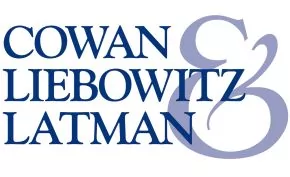- within Cannabis & Hemp topic(s)
- with readers working within the Healthcare industries
The retransmitter of unlicensed copyrighted programming could not escape infringement liability when its charges to users exceeded its costs, despite its effort to characterize its charges as "recommended donations." Following motion practice, the retransmitter service is no longer operational.
Section 111(a)(5) of the Copyright Act shields governments and non-profits from liability for cable broadcast retransmissions if the retransmission is made "without any purpose of direct or indirect commercial advantage, and without charge to the recipients of the secondary transmission other than assessments necessary to defray the actual and reasonable costs of maintaining and operating the secondary transmission service."
In ABC v. Goodfriend, No. 19-cv-7136, 2021 U.S. Dist. LEXIS 164978 (S.D.N.Y. August 31, 2021), the U.S. District Court for the Southern District of New York considered the extent to which 17 U.S.C. § 111(a)(5) insulated defendants from liability for retransmitting television broadcasts to users of defendants' Locast service. Defendants consisted of Sports Fans Coalition NY, Inc. ("Sports Fans"), a non-profit, and its owner, David Goodfriend. Sports Fans operated Locast, a service that received over-the-air broadcast signals and retransmitted those signals over the internet to users so that they could stream live television on their chosen connected device.
Although the broadcast signals included copyrighted material from plaintiffs' stations, Locast did not license such content from plaintiffs or otherwise receive consent for retransmission. Users of the Locast system could purchase "preferred" access for $5 per month to receive uninterrupted programming, but users who did not pay for full preferred access would have their programming interrupted with videos seeking donations from users.
The Goodfriend court found that defendants had not offered the Locast service "without charge to the recipients . . . other than assessments necessary to defray the actual and reasonable costs of maintaining and operating the secondary transmission service." In 2020, the cost for the Locast service amounted to 2.436 million dollars, while the service generated 4.519 million dollars in revenue – mostly from user charges, despite defendants' characterization of these charges as "recommended donations" – indicating that the service generated significantly more from such charges than was "necessary to defray the actual and reasonable costs of maintaining and operating [Locast]."
In analyzing § 111(a)(5), the court adhered closely to the text of the statute. Defendants argued that funding for their service qualified for the statutory exemption because user payments were used for "maintaining and operating an expanding system," and that expansion costs were part of Locast's operation. But the court found that § 111(a)(5) allowed for an exemption only if costs were used "to defray the actual and reasonable costs of maintaining and operating the service, not of expanding it into new markets." Without more, the court could not infer from the text that Congress intended an exemption for costs collected for service expansion.
Finding that defendants failed to qualify for the exemption, the court granted plaintiffs' motion for summary judgment and struck defendants' affirmative defense under 17 U.S.C. § 111(a)(5).
The court's finding that defendants failed to qualify for an exemption under 17 U.S.C. § 111(a)(5) ultimately resulted in the end of the Locast service. Pursuant to a 2019 agreement, the parties acknowledged that if defendants did not qualify for an exemption, then the court should immediately enjoin them from operating Locast. Accordingly, following the court's August 31 order, and on plaintiffs' motion, the court entered a permanent injunction order, tolling the death knell for the service.
The content of this article is intended to provide a general guide to the subject matter. Specialist advice should be sought about your specific circumstances.
[View Source]

